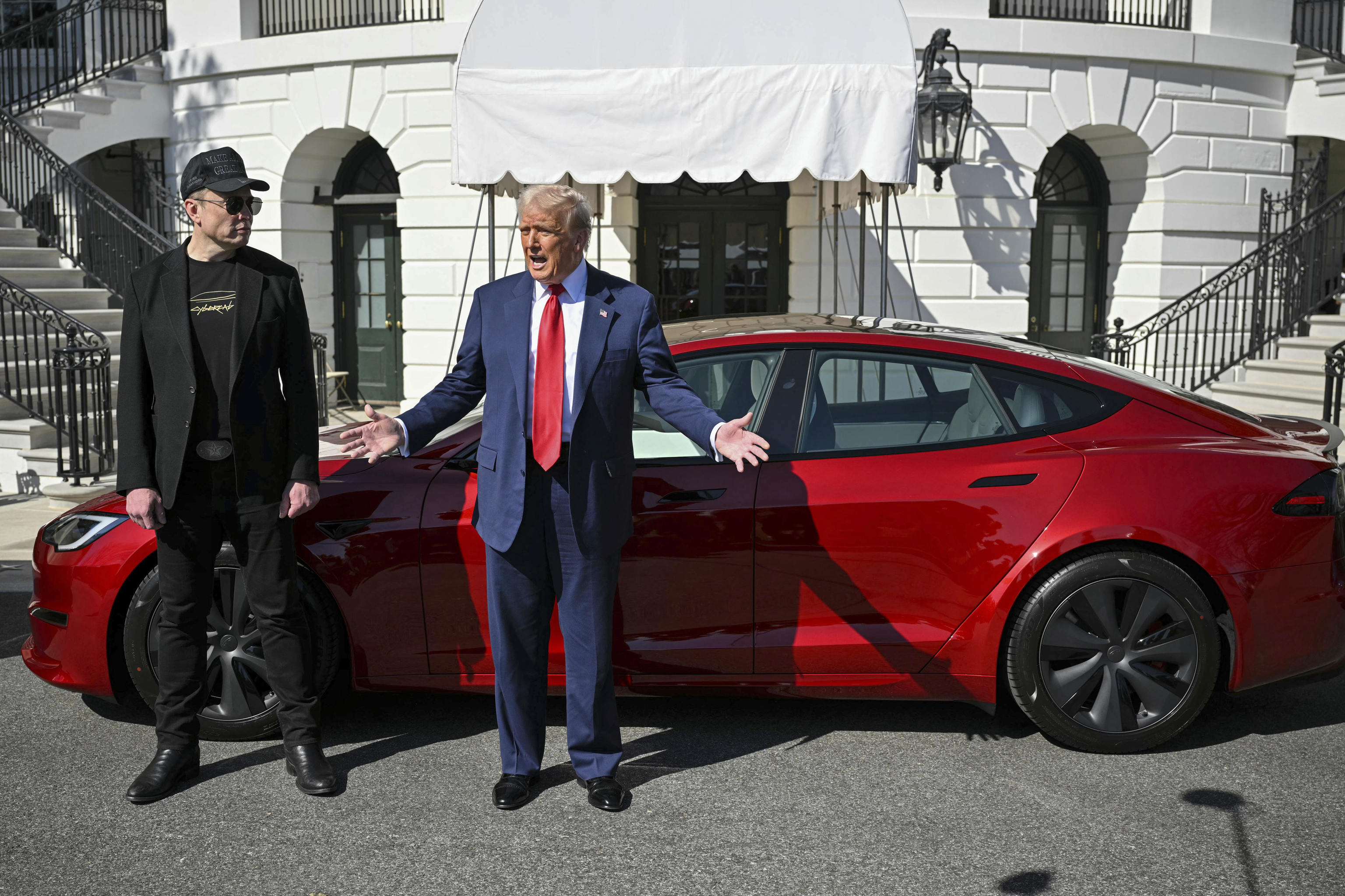Shortly after acknowledging the possibility of a recession, which caused one of the worst days in recent years for the US stock market on Monday, the country's president, Donald Trump, came to the defense of one of the companies that have suffered the most since he took office: Tesla. He did so with a message on his social network - not on X - urging conservative citizens to purchase vehicles from Elon Musk, who also heads the government efficiency agency.
On Monday, Tesla's shares fell by 15%, meaning they have already lost almost half of their value so far this year (dropping from $417 on December 30 to $215 on March 10). During this period, the company's car sales have plummeted.
In January, according to ACEA data, Tesla sold 7,157 cars throughout Europe, 50.3% less than in the same month of 2024. In February, although there are no global data yet, sales dropped in Germany (-76%), the Netherlands (-24%), Sweden (-42%), Norway and Denmark (-48%), France (-45%), Italy (-55%), Spain (-10%), and Portugal (-53%). There has also been a decrease in the United States, albeit more moderate, according to Ward Intelligence: a 7% drop in 2024 sales and a 2% decline in the first two months of 2025. All this, without a depression in sales being detected for other electric competitors (in Germany, for example, the segment grew by over 50%).
In this context, Trump's message was directed "to Republicans, conservatives, and all great Americans." He argued that Elon Musk is "taking a risk" to help the country, while "radical left-wing lunatics" are trying to "illegally and conspiratorially boycott Tesla -"Elon's baby," who has 14 children- to harm Elon and everything he represents." He stated that he would buy a new Tesla on the same Tuesday "as a show of trust and support" for the executive.
In the United States, there are voices linking the sales decline to Musk's increasingly close ties to the US government and his frequent controversies. On forums like Reddit, Tesla cars have started to be renamed as swastikar or Model SS, two wordplays linking Nazism with the brand, whose founder did something, at the very least, resembling a Nazi salute at a Trump rally.
Shortly after this gesture, singer Sheryl Crow shared the process of selling her Tesla on her social media, something that other owners have also documented. While the actual impact of these actions on the company's results seems more limited, their reputational impact appears to be increasing. In 2024, there was a significant 12% drop in sales in traditionally Democratic California, which has been one of its main markets in the United States.
However, Eduardo Arcos, director of Hipertextual and an expert in electric mobility, does not believe that Europe has experienced such a strong rejection of Tesla and Musk. In his opinion, the sales decline is more related to the launch of a new Model Y, which had been the best-selling electric car in the continent until this year: "More than half of the sales in Europe are of the Model Y, Tesla's factory in Berlin only produces this car because it is the most purchased." The first units of the new Model Y will start to be delivered throughout March, something that Arcos believes will be reflected in registrations later on.
"If it has happened in Europe, it must be very anecdotal," explains the expert. "This is subjective, but personally, I have never felt any rejection for driving a Tesla, nor have I heard comments from the community." In his view, the controversy "feels a bit distant to us", and although he acknowledges that there are people who do not share Musk's messages, he believes that "being in Europe and not having Elon Musk so close, there is not the same effect as in the United States."
In this regard, Arcos highlights a significant differentiation between Tesla users in the United States and Europe. In the North American country, at least in its early years, the brand - and electric vehicles in general - was more associated with Democratic voters, who turned to non-polluting cars in a country heavily reliant on private transportation. Meanwhile, in Europe, although there is a fuel-saving factor, Musk's company is more associated with luxury.
"If you look at the typical buyer profile of an electric car today, it tends slightly towards the right due to the price segment," contextualizes Arcos. "The economic segment in which an electric car is located tends towards a buyer who is closer to 50 than 40, perhaps a manager..." And while some opt for this choice for environmental reasons - as he himself acknowledges - in his interactions with the community, he sees that "many people do it for what the brand represents in terms of luxury."
